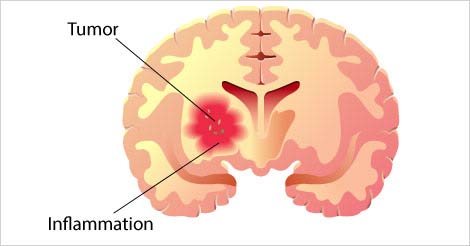Brain Tumour: Types, Causes, Symptoms, and Prevention
The word brain tumour can be scary for everyone. A brain tumour is a collection of uncontrollable and abnormally grown cells in the brain. Brain tumour can cause pressure on the brain and brain being a vital organ this condition might be life threatening.

Type of Brain Tumours
-
Primary Brain Tumours:
These tumours grow inside the brain and may spread to the nearby parts of the body. These tumours may also originate in the brain cells, membranes surrounding the brain, nerve cells, and glands. -
Secondary Brain Tumours:
These tumours spread from other parts of the body to the brain. Lung cancer, breast cancer, kidney cancer and skin cancer can spread to the brain in the later stages.
Risk Factors that may Cause Brain Tumours
The exact reason of brain tumours is still unknown. However, doctors believe that brain tumour risk factors include family history, age, race and exposure to chemicals or radiation which can cause a brain tumour.
Symptoms of Brain Tumours
There are a lot of symptoms associated with brain tumour such as:
- Headaches
- Vomiting
- Blurred vision
- Double vision
- Confusion
- Weakness
- Memory loss
- Loss of ability to hear, smell or taste
- Dizziness
- Loss of balance
- Mood swings
Diagnosis of Brain Tumour
If the doctor notices one or more symptoms in a patient, he/she is suggested the MRI scanning. A detailed neurological examination, evaluating muscle strength, coordination, memory, and ability to do numeric problems can help in the brain tumours diagnosis. Other than that, procedures like Angiography, X-ray and biopsy are performed to determine the presence and stage of the tumour and to identify whether it is cancerous or not.
Treatment of Brain Tumour
The treatment of the brain tumour depends on a lot of factors such as:
- Type of the tumour
- Size of the tumour
- Location of the tumour
- Health of the patient
The Most Common Treatment Includes:
- Surgery: the surgeon removes the tumour as much as possible without causing any damage to the healthy part of the brain.
- Surgery is combined with other treatments such as radiation therapy and chemotherapy.
- After the surgery, the patient will need physical therapy, occupational therapy and speech therapy to overcome the side effects of neurosurgery.






